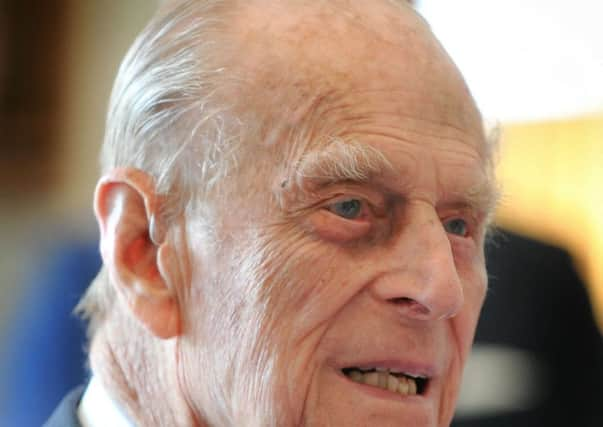I haven't had flu in 40 years, Philip tells health experts


Philip made the revelation about his good health when he joined the Queen on a tour of the £650 million Francis Crick Institute - a major biomedical research centre that aims to develop new ways of preventing, diagnosing and treating disease like cancer, HIV and malaria.
With the flu jab recommended for the over-65s, it is not known if Philip has had the procedure but he chatted about his apparent immunity to flu expert Dr Yi Pu Lin.
Advertisement
Hide AdAdvertisement
Hide AdThe Queen’s consort first asked Dr Lin if someone could develop an immunity or resistance to flu, then added: “Why haven’t I had flu for the last 40 years?”
Philip is now in his 96th year but apart from a few short stays in hospital in recent years appears to be in good health and still leads an active lifestyle.
Later, Dr Lin, assistant director of the London institute’s worldwide influenza centre, which plays a part with other global centres in determining the content of flu vaccines, tried to explain the Duke’s lack of flu symptoms.
She said: “He said he was now 95 and he may previously been infected and now he has immunity, even with new viruses coming the immunity can be stimulated, so that’s possible.
Advertisement
Hide AdAdvertisement
Hide Ad“Different people have different immuno responses and for some people it’s probably easier to catch and for some people probably not that (easy).”
She added that Philip might have had a “sub-clinical infection” where the immune system is strong enough to fight off the virus without the person feeling unwell.
Dr Lin said: “You don’t get symptoms but actually you’ve had a virus and your body’s fought with it and overcome it, so you don’t have problems and you don’t know you’ve had flu.”
She joked that environment played an important part and unlike the public, who “go to the Tube every day” and have more chance of being infected, Philip did not.
Advertisement
Hide AdAdvertisement
Hide AdThe Francis Crick Institute was completed in August and is named after the British scientist who, with colleague James Watson, was awarded the Nobel Prize for their discovery of the structure of DNA.
Dr Watson watched as the Queen unveiled a plaque to officially mark the opening of the institution and a painting of Crick - complete with 3D hands.
He said about his colleague: “He was the greatest scientist of the last century and the building reflects that.”
During her tour of the new biomedical facility, the Queen pressed a touch screen to start the sequencing of the genome - all three billion letters in the DNA code - of the institute’s director Sir Paul Nurse.
Advertisement
Hide AdAdvertisement
Hide AdThe monarch and Duke were joined by their son the Duke of York when they sat with guests for a short lecture about the fight against flu.
Sir Paul said about the work the institution will undertake: “Essentially, life in the human body is very complex and dealing with disease requires understanding of that complexity - it’s hard stuff.
“And we will dig away at that problem and through that we will generate better understanding of disease.”